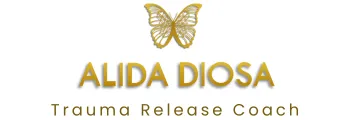
Rediscovering Self-Trust: Transforming Doubt into Confidence
“The privilege of a lifetime is to become who you truly are.”
— Carl Jung
Emma’s Story: When the World Gets Louder Than Your Body
Emma rereads the job offer. Prestige, pay, potential. Her mind stacks reasons to say yes. Yet her chest feels tight and small. She reaches for her phone to poll loved ones, then pauses. When did other voices become louder than her own inner compass? In the quiet, she notices a simple truth: somewhere along the way, she stopped trusting herself.
What Is Self-Trust?
Self-trust is an embodied confidence in your own perceptions, boundaries, and guidance. It is a nervous system state of safety and inner knowing that does not depend on circumstances or approval. Confidence can be situational. Self-trust is relational: you and your body, in honest conversation.
What Was Lost
Children follow inner signals with ease. Hungry, they eat. Tired, they rest. Frightened, they seek closeness. Many of us learned to override these signals to maintain belonging. “Don’t be so sensitive.” “Be grateful.” “Don’t make a scene.”
We became excellent at reading rooms and poor at reading ourselves. That strategy once protected connection. As adults, it can mute authenticity.What was once an instinctive compass became a buried instrument, waiting for us to tune back in to its quiet song.
The Science of Self-Trust
Interoception and decision quality. Stronger awareness of internal signals correlates with better emotion regulation and decision making. The insula integrates body signals with feeling and cognition (Critchley & Garfinkel, Nature Reviews Neuroscience, 2017).
Somatic markers. The body tags options with subtle sensations that guide choices before conscious reasoning engages (Damasio’s somatic marker hypothesis). When emotion-processing circuits are disrupted, logic remains yet decisions degrade.
Polyvagal perspective. In ventral vagal states of safety and connection, intuitive access expands. In sympathetic charge or dorsal shutdown, doubt and confusion increase.
Attachment and epigenetics. Consistent attunement supports internal regulation and self-confidence. Intergenerational stress can shift gene expression linked to stress responsivity, influencing baseline felt safety over time.
These lenses affirm a simple orientation: self-trust grows when the body feels safe enough to speak and we are willing to listen.
When Self-Doubt Becomes Costly
Self-reflection is healthy. Chronic self-doubt is costly when it
paralyzes decisions,
outsources everyday choices to others,
fuels people-pleasing that erodes boundaries,
sustains imposter feelings despite clear competence,
shows up as persistent body tension or shutdown.
What once preserved belonging can become a pattern of self-abandonment.
The Unfinished Business
Self-doubt often carries internalized voices from the past. Parts of us learned that sensitivity, clarity, or fierceness were “too much,” so they went underground. The body remembers the moments we overrode our knowing. Rebuilding trust is not performing certainty. It is welcoming these exiled parts back into relationship.
Somatic Practice: The Inner Compass Check-In
A single practice to use before a high-stakes choice or a crowded social moment. Approx. 7–10 minutes.
Step 1: Foundation and Grounding
Place both feet on the floor. Inhale gently 5 times, letting every exhale be longer. One hand on heart, one on belly. Whisper inwardly: “I am here.”
Step 2: Body Awareness Scan
Move attention from crown to soles. Notice where your body feels open or tight, warm or cool, present or numb. Give three slow breaths to any area that asks for space, especially throat, heart, and gut. Notice the temperature of the air on your skin or a sound in the room, letting it anchor you further into the present moment.
Step 3: Present-Moment Truth
Bring the decision or upcoming interaction to mind. Ask: “What feels true for me right now?” Do not analyze. Notice images, words, impulses, or a simple sensation that says yes, no, or not yet.
Step 4: Inner Compass Calibration
Recall a time you honored your knowing and it served you. Sense that body signature. Recall a time you overrode your knowing and regretted it. Sense that, too. Return to the present situation and notice which signature it resembles.
Step 5: Integration and Commitment
Thank your body for speaking. Name one small action that honors what you discovered, even if it is “sleep on it” or “ask for more information.” Place both hands on your heart: “I trust my inner wisdom. I am learning to come home to myself.”
This one practice is enough. If this felt supportive, return often, repetition is how self-trust roots itself in the body.
When Overwhelm Visits
If doubt surges and clarity disappears, it is not failure. It is protection.
Step to a quiet spot.
Hands to chest and belly. Breathe without forcing depth.
Remind yourself: “It is okay not to know yet. Clarity can arrive when my body feels safe.”
If needed, ask a trusted person to sit nearby and co-regulate in silence until steadiness returns.
Reflection Prompts
When do I feel most connected to my inner compass? What conditions support that?
Which messages from childhood asked me to override my own sensing?
How does my yes feel in the body? How does my no feel?
What is one small boundary that would honor my present truth?
You don’t have to answer these questions just by stating them out loud. Your body wonders and responds internally. Emma, too, discovered that when she paused to listen, her body had been whispering the truth all along. Your reflections may reveal the same gentle compass waiting in you.
FAQ: Rebuilding Self-Trust
Q: Is my inner voice real if anxiety is loud?
Your authentic inner voice tends to feel steady and spacious, even when it points toward something challenging. Anxiety feels urgent and constricting. Learning the difference is a body skill that grows with practice.
Q: What if trusting myself leads to mistakes?
Mistakes are information, not verdicts. Self-trust includes course-correcting with kindness. Over time, decisions sourced from authenticity tend to be cleaner and less costly.
Q: Is it selfish to prioritize my inner knowing?
Honoring your truth reduces hidden resentment and depletion. From that place, generosity is clearer and freely chosen.
Q: How can I rebuild trust if I’ve ignored my intuition for years?
Begin with one small promise you can keep today. Keep it. Repeat. Reliability toward yourself creates safety, and safety grows trust.
Your Invitation Forward
If Emma’s story stirred something familiar, you are already listening. The next step is practicing that listening in the body, gently and consistently.
My Priorities & Identity Update Session is a focused, 50-minute trauma-informed experience designed to reorganize self-concept, clarify boundaries, and support decisions that align with your authentic values. It helps regulate your nervous system and reconnect you with your natural capacity for hope and possibility.
✨ Use code GET50NOW for 50% off your session (first 3 bookings this week). 👉 Click here to book your session.
💛 A gentle reminder: you don’t have to spend years carrying what feels too heavy. There comes a moment when you choose "enough". That’s where real change begins, and I’m here to walk with you through it, safely. -Alida
🎧 This theme continues in a spoken format inside the Trauma Awareness Podcast. LISTEN TO Episode 4 : Rebuilding Self Trust Through Your Body’s Truth
Related Posts You May Love 💜
Listening to Your Body’s Wisdom: The Art of Somatic Intelligence
Breaking Free from People-Pleasing: Reclaiming Your Authentic Voice
The Art of Sacred Boundaries: Protecting Your Energy and Authenticity
Related Resources & Further Reading
Scientific Research
Self-trust is deeply connected to interoception (your ability to sense internal signals like breath, tension, hunger, fatigue, and emotional activation). Research frames interoception as foundational to self-awareness and the felt sense of “knowing what’s true” internally — which directly impacts confidence, emotion regulation, and decision-making.
Contemporary neuroscience reviews also emphasize that interoceptive signals support the experience of self (bodily self-awareness) and influence how we interpret internal states, shape identity, and create meaning — all of which are core to stable self-trust. Read the Science Direct article.
Clinical & Treatment Approaches
In trauma-informed practice, rebuilding self-trust often requires restoring safety inside the body, not just changing thoughts. Somatic approaches focus on capacity, pacing, and tracking sensation — so the nervous system can learn that inner signals are safe to feel, interpret, and act on.
Healthy boundaries are also a core mechanism of self-trust because they operationalize self-respect and internal authority. Clinical guidance from UC Davis Health explains how boundaries support emotional safety, relational health, and mental well-being.
Accessible Overviews
If you want an intelligent, embodied explanation of “trusting your body” and strengthening your inner compass (without spiritual bypass), this guide offers practical approaches grounded in psychology and emotional regulation.





